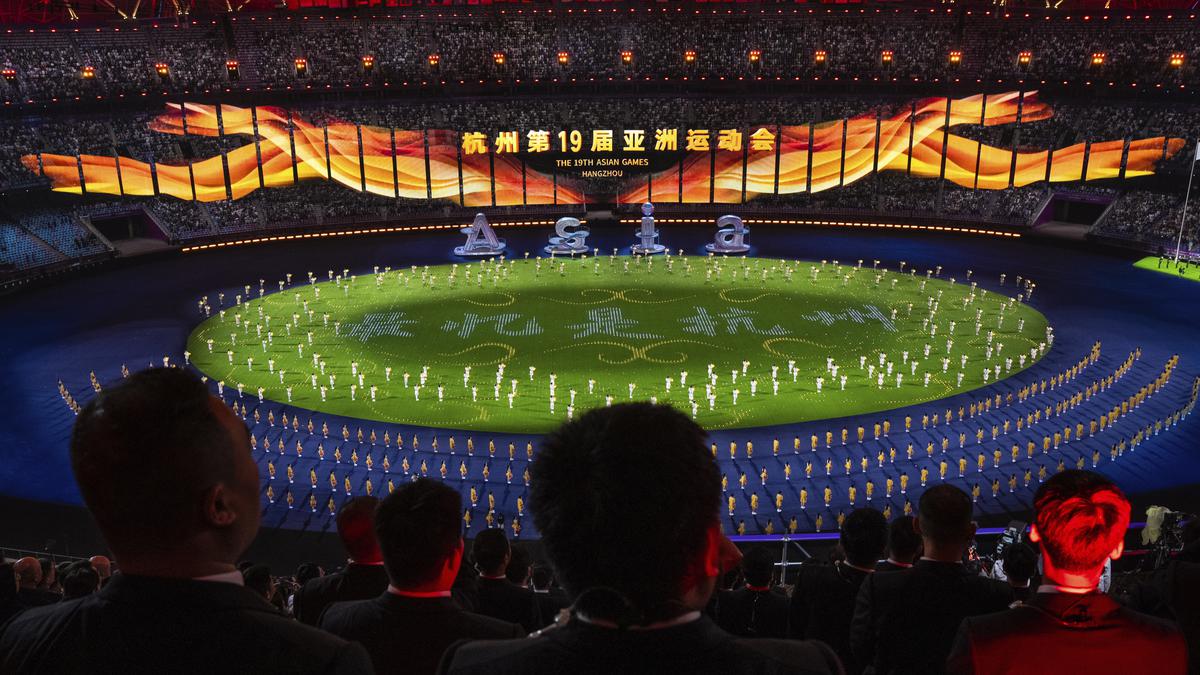
Hangzhou Asian Games | Medals across 21 events; Indian sportspersons make big strides
The Hindu
India crossed the 100-medal mark for the first time at the Asian Games, with athletes from 21 sports winning medals. From unassuming rowers to kabaddi, India proved they were not here to just make up the numbers. New heroes emerged in diverse events, old favourites reaffirmed faith and new grounds broken in badminton, table tennis and squash. India's medal haul a result of processes set in place and a new generation of athletes who desire more and fear nothing.
When the Indian Olympic Association and the Sports Ministry launched the slogan ‘Ab ki baar sau paar’ for the 2023 Asian Games, there were few serious takers for the claim. After all, the previous best was 70 in Jakarta five years ago.
Logic, cynicism and India’s medal history ensured even seasoned observers of Indian sports erred on the side of caution, giving a conservative estimate of somewhere in the mid 80s. Even halfway through the two-week competition here, the 100-medal mark looked a little far-fetched. On Friday, the women’s kabaddi team had the honour of not only regaining the gold it lost in 2018 but also be the 100th Indian medallist. As claimants for the origin of the sport, it was perhaps befitting that kabaddi marked the milestone moment.
But through the past 15 days, Indians proved repeatedly that they were not here to just make up the numbers. It began in water with the unassuming rowers and ended on the mat with a gold in what, after hockey, is the one sport that ignites Indian sentiments like nothing else. In between, the nation found new heroes in events as diverse as equestrian dressage and roller-skating, reaffirmed faith in old favourites like hockey and boxing and broke new grounds in badminton, table tennis and squash. And while the likes of shooting and athletics provided the bulk of medals, the spread of Indian medalists across 21 different sports in this edition says much about the strides Indian sportspersons have made in the last few years.
It has taken India 72 years and 18 editions to reach this stage. At the end of competition in Hangzhou late on October 8 night, the country was fourth on the medals table with 107 medals – 28 gold, 38 silver and 41 bronze – a jump of four places from Jakarta, where India had 16 gold, 23 silver 31 bronze. And while perspective is a good thing – there were an incredible 60 disciplines here, including newcomers like breaking, sport climbing and e-sports that pushed the number of medals much higher than ever before – it is no mean achievement for India given that a bulk of its medals came in the traditional events despite the largest-ever contingent of 655.
India finished track&field with 29 medals (six gold), shooting with 22 (seven gold) and archery with nine including five golds, the three sports contributing more than half of India’s medals. The division of medallists across genders is also almost equal – 52 came from men, 46 from women, the rest in mixed events. Rifle shooter Aishwary Pratap Singh Tomar and pistol ace Esha Singh took home four medals each and were among the 30 athletes to win more than one medal. India did not have a single medal-less day through the two weeks of competition.
While events like cricket, kabaddi, hockey, badminton or shooting are well known and among the more followed sports in India, the medalists this time included sepak takraw (women’s regu bronze), wushu (silver), roller skating (men’s and women’s 3000m relay bronze each) and bridge (men’s team silver). There were also some outstanding performances and medals in sports that were hitherto considered out of bounds for Indians – Sutirtha and Ayhika Mukherjee’s stunning quarterfinal win against the world champion Chinese pair of Meng Chen and Yidi Wang in table tennis, Chirag Shetty-Satwiksairaj Rankireddy’s incredible gold-winning run in badminton doubles, the team of Anush Agarwalla, Hriday Chheda, Sudipti Hajela and Divyakriti Singh who combined to win first-ever dressage team gold in equestrian, Ebad Ali’s bronze in windsurfing -- India’s first ever international medal in the event.
It was also an edition that might have seen the last of some sporting legends who gave their everything to not go home empty-handed – Rohan Bopanna (tennis) and Saurav Ghosal (squash) – while seeing the rise of a new generation of athletes who desire more and fear nothing, taking on the world as equals. Abhay Singh’s final showdown against Pakistan to win men’s squash team gold, HS Prannoy coming back from dead to reach the semifinals for the first-ever men’s singles medal since Syed Modi in 1982.













